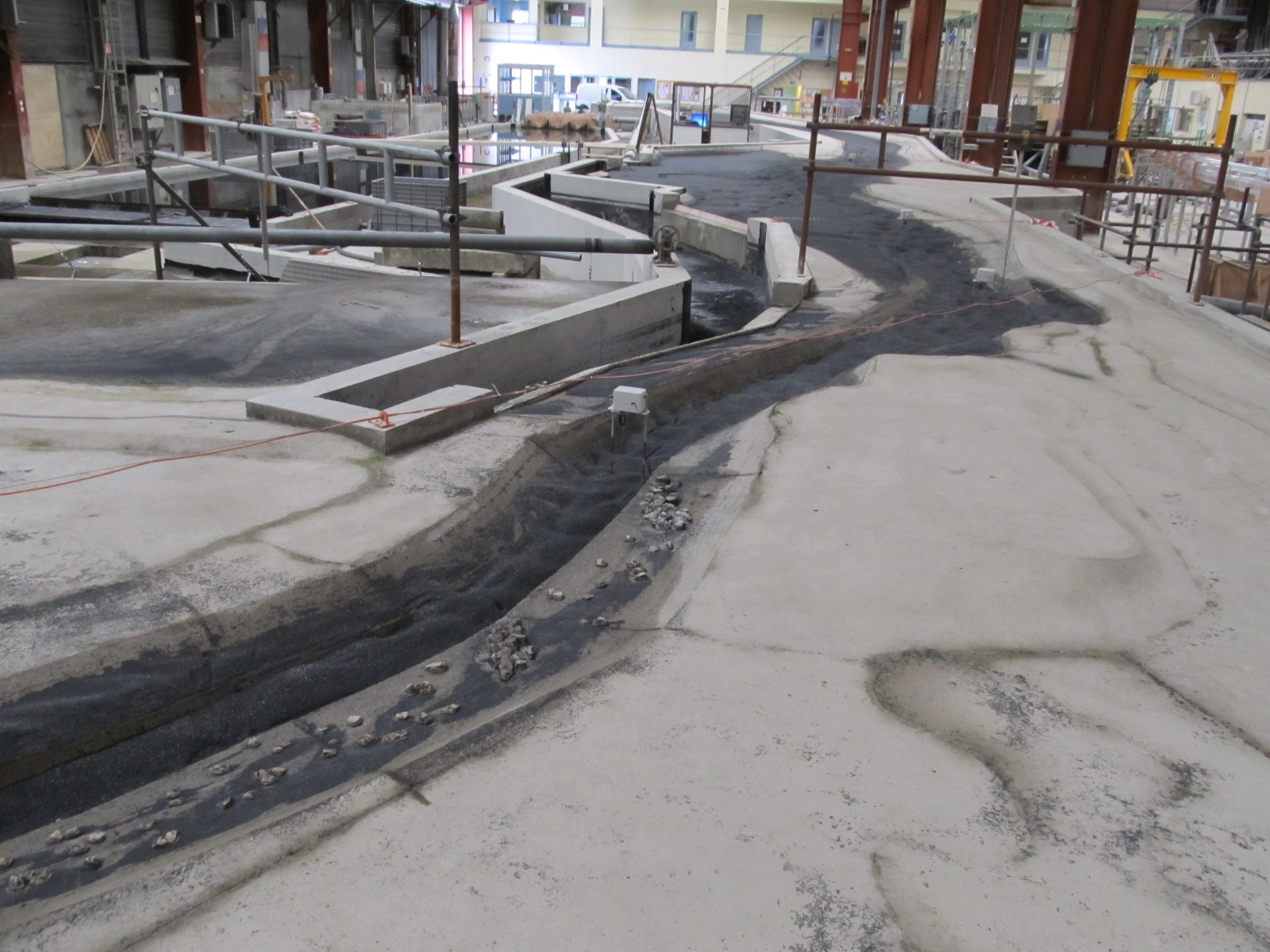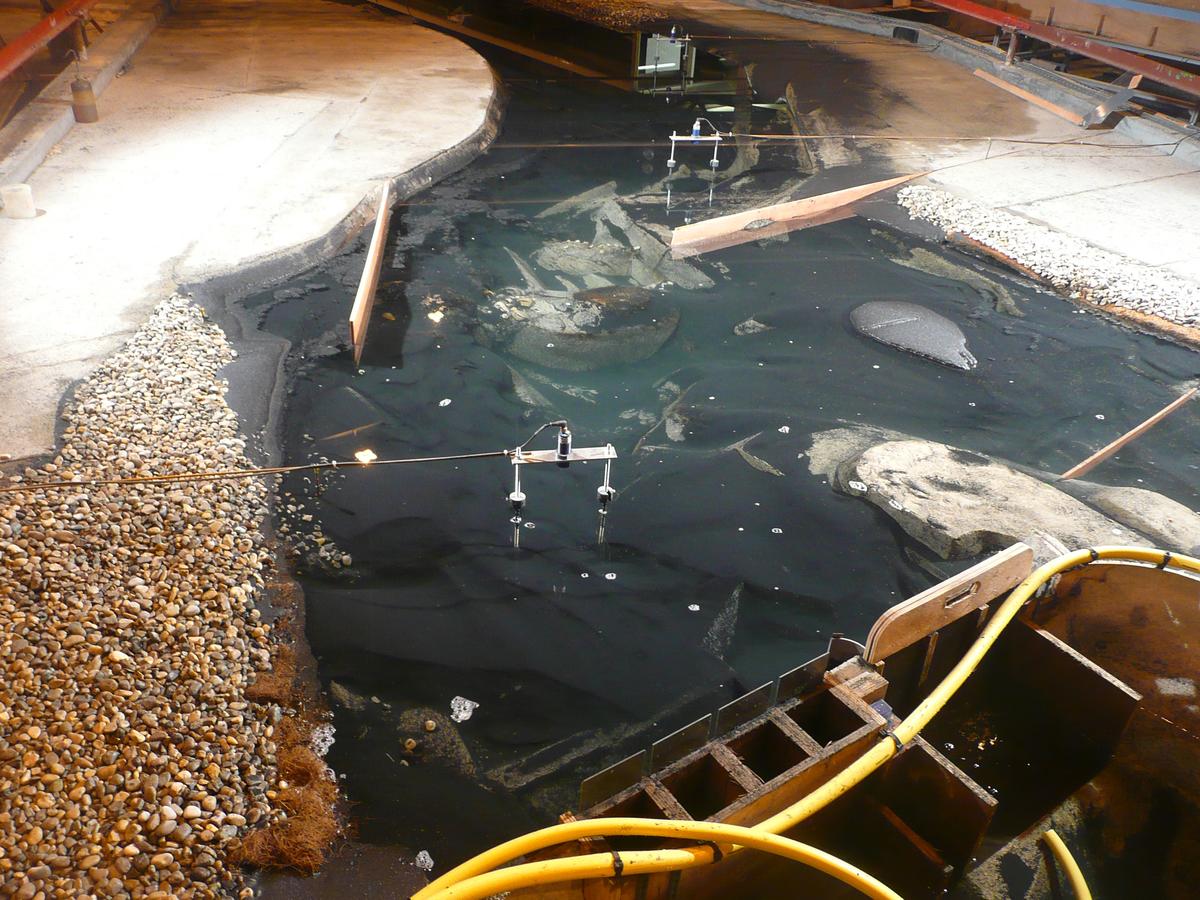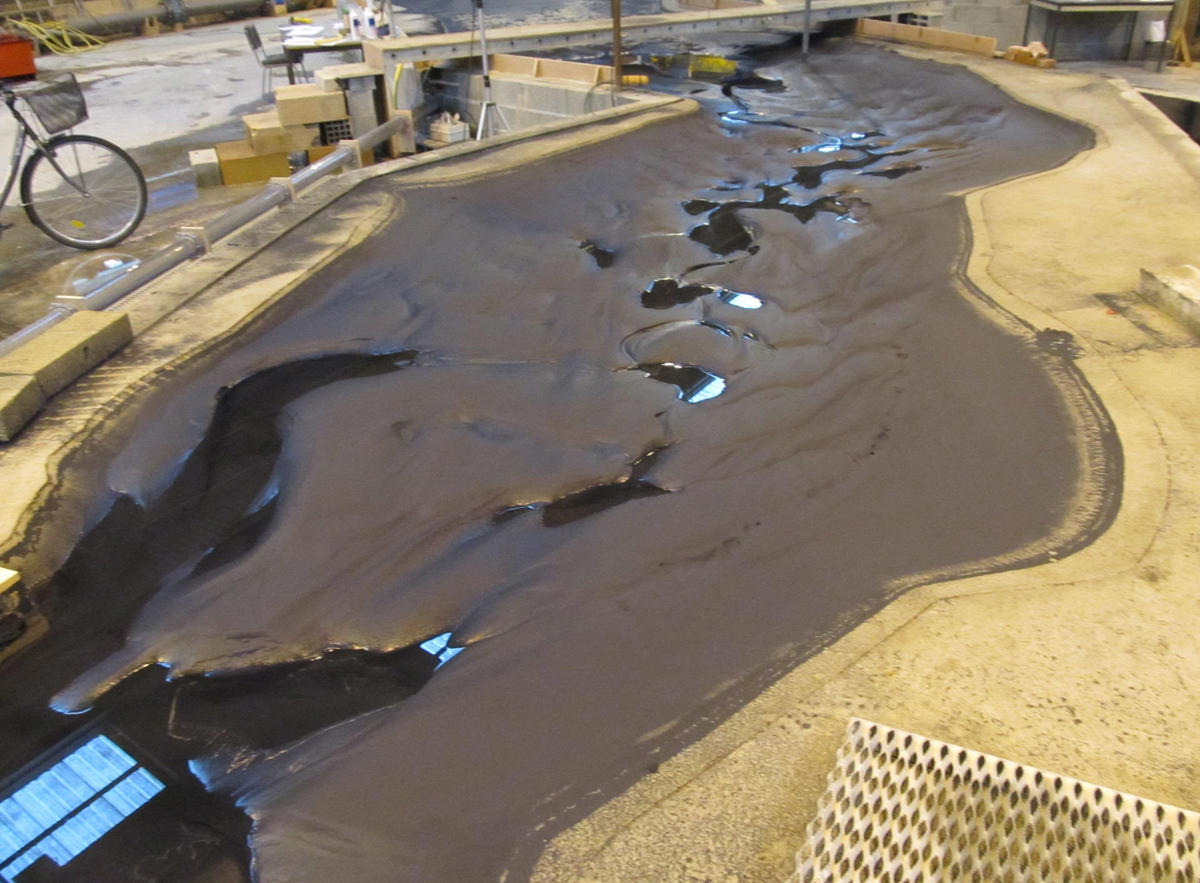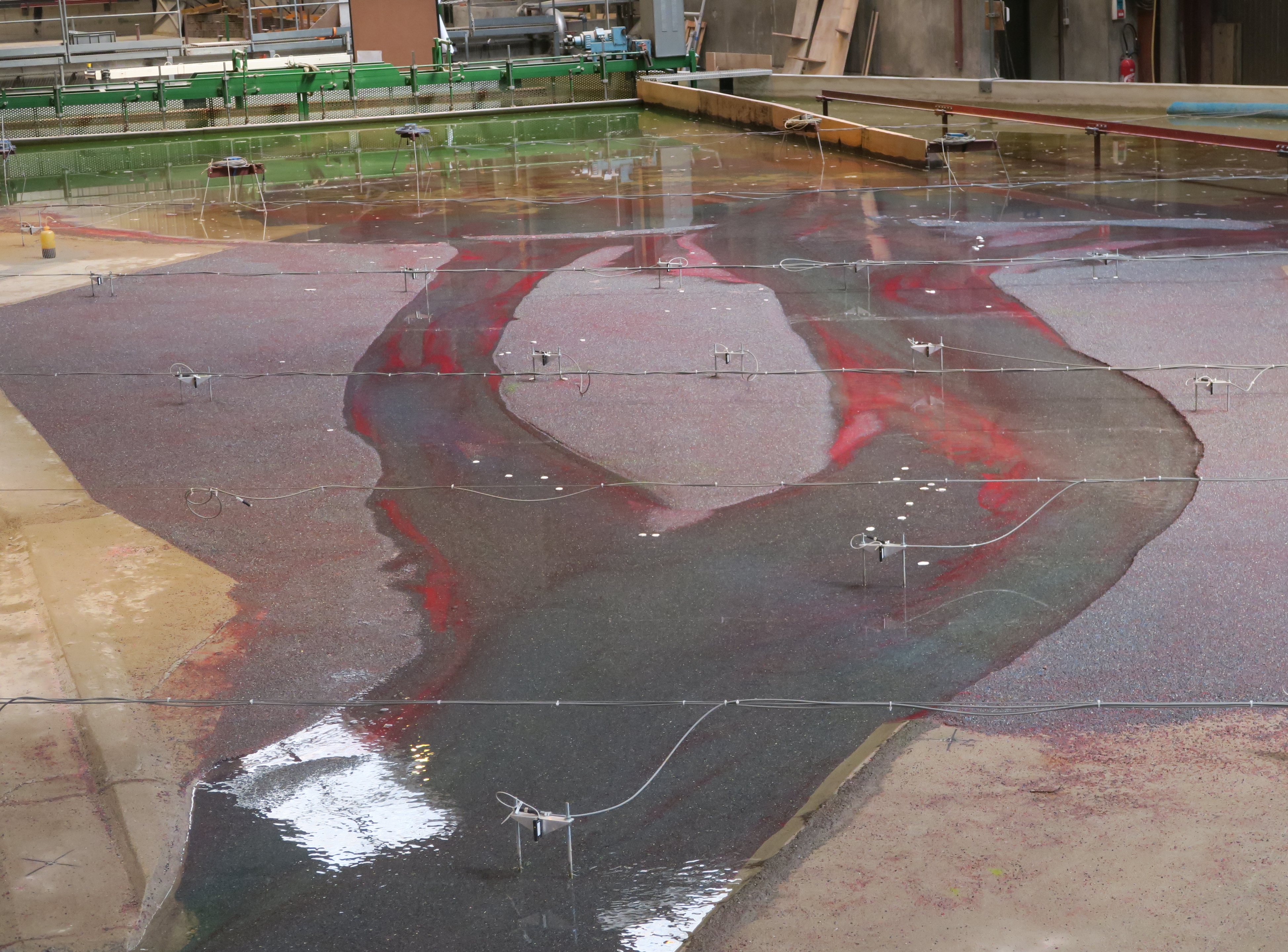
Sedimentation in rivers and reservoirs
Finding ways to manage the sedimentary impact of river structures, in particular sedimentation in dam reservoirs, to operate them sustainably in the long-term and limit their ecological impact.
What we do
The sediment balance of a river is fragile and should be considered as an issue in itself in any river development project involving backfilling, weirs, water intakes, gated structures, dams, etc. Whether in the context of watercourse restoration (elimination of embankments, reactivation of oxbows, etc.) or the development of river structures, this sedimentary aspect of hydraulic projects is now rightly considered to be a serious environmental and sustainable management issue. In particular, the risk of sedimentation in dam reservoirs is an essential component of the dimensional design of structures: sediments from the catchment basin can rapidly fill up part of the reservoir and thereby reduce its water storage capacity.
Using its hydraulics laboratory, Artelia will assist you in studying sedimentation mechanisms and the reactivation of sediment deposits in rivers and dam reservoirs. The physical model replicates these complex mechanisms and provides a means of testing various solutions to limit the impact of sediment on projects, such as by-passes, sediment flushing, or full gate opening during floods, in order to propose durable structures. In addition, these studies are paired with an operational study of the various hydraulic components of the structure (flood spillway, outlet structure, operation of the water intake, etc.).

Our expertise
- Extremely precise 3D physical modelling
- Movable-bed models
- Sediment transport: bed-load or suspended transport
- Phenomena in steady and unsteady flow conditions (floods)



